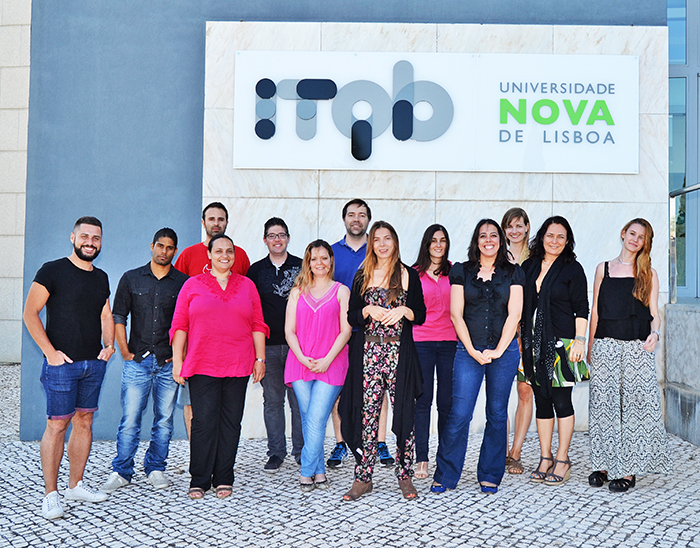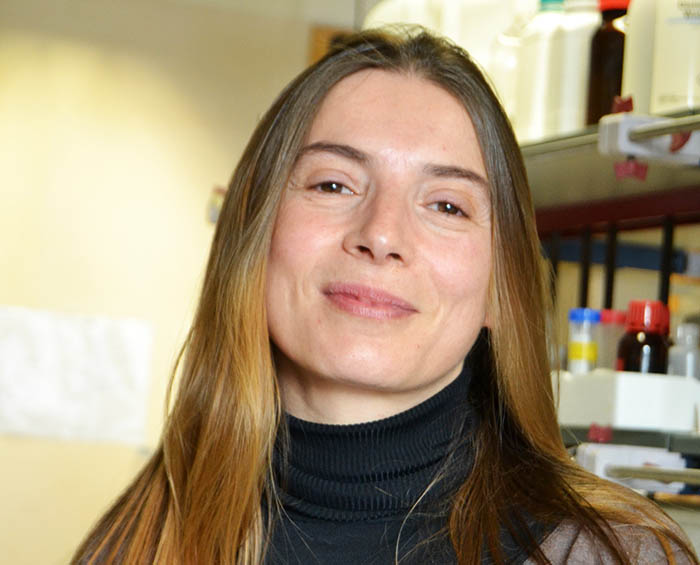 A European project, with the participation of Portuguese researchers, for the production of polymers through a process inspired by nature, namely the production of silk threads, has just received the award of 3,7 million euros.
A European project, with the participation of Portuguese researchers, for the production of polymers through a process inspired by nature, namely the production of silk threads, has just received the award of 3,7 million euros.
Spiders and silkworms have been developing strategies for processing their materials for hundreds of millions of years. Silk, for example, is 1000 times more efficient in processing the units that make up its threads than a synthetic polymer and this can provide clues for the synthesis of new materials.
Currently, plastics are produced from non-renewable sources, such as natural gas and crude oil. There is no sustainable plastic production pathway and, at the same time, there is a serious problem of plastic waste, particularly in the sea and oceans.
However, the need for resistant polymers is of growing importance: for packaging, building materials, transport, medicine and healthcare, electrical and electronic products, agriculture, sports or leisure, plastics are everywhere.
Could the solution be in a natural way of producing polymers, starting from other natural compounds?
 The Flow-Induced Phase Transition (Flow Induced Phase Transitions, FLIPT) is a new process that researchers from this European consortium believe may be the key to a new way of processing polymers.
The Flow-Induced Phase Transition (Flow Induced Phase Transitions, FLIPT) is a new process that researchers from this European consortium believe may be the key to a new way of processing polymers.
Starting today, September 1st, and over the next three years, this vision will be investigated and tested in four countries, including Portugal.
In the laboratory of researcher Cristina Silva Pereira, from the Institute of Chemical and Biological Technology, Universidade Nova de Lisboa (ITQB NOVA), several candidates for biopolymers to be used for this technique, in particular plant polyesters, will be analyzed.
“We believe there is enormous potential in unraveling silk's functionalities and applying them to various materials that polymerize. Our goal is to develop technological tools capable of producing new materials, at a low cost and with less energy, which can be competitive in quality and quantity to petroleum-derived polymers, being much superior in terms of the sustainability of the planet", declared the researchers to European Union – which believed in this vision and awarded it 3,7 million euros.
The project "Flow Induced Phase Transitions, A new low energy paradigm for polymer processing” is coordinated by the University of Sheffield, United Kingdom, with partners from Portugal (ITQB NOVA), United Kingdom (The Chancellor, Masters and Scholars of the University of Oxford and Oxford Biomaterials), Finland (Teknologian tutkimuskeskus VTT Oy and SPINNOVA OY), Denmark (Aarhus Universitet) and Germany (Leibniz Institut fur Polymerforschung Dresden).
Who is the lead investigator?
Cristina Silva Pereira has been principal investigator at ITQB NOVA's Environmental and Applied Mycology laboratory since 2008.
In its laboratory, sustainable technologies are developed for the management and elimination of pollutants, and for the creation of added value from composites resulting from agro-industrial activities.
In 2015 he was awarded a grant of 2 million euros from the European Research Council (ERC), to mimic the functionality of plant polyesters as antimicrobial biomaterials for the regeneration of skin wounds (5 years).
In 2016, 300 thousand euros were awarded to him to participate in the European project “Flow Induced Phase Transitions, A new low energy paradigm for polymer processing" (3 years).
What is the Environmental and Applied Mycology laboratory
Founded in 2008, research began by focusing on biotechnology, in particular to explore the potential applications of fungi and their metabolic systems for biodegradation and bioremediation.
The group's focus has evolved over time and is currently seeking to answer central questions in the biology and ecology of fungi: how chemical compounds (natural or human-introduced) have been shaping the development and shape of fungi, its ecological resilience and pathogenicity?
What is ITQB NOVA
The Institute of Chemical and Biological Technology, Oeiras, is a research and advanced training institute of the Universidade Nova de Lisboa.
Its mission is to carry out scientific research and promote advanced training in Life Sciences, Chemistry and associated Technologies, for the benefit of human health and the environment.



















Comments